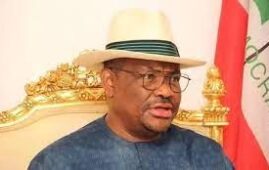By Zhong Sheng
It’s not hard to find that voices different from Washington always occurred in American society every time the US government took actions to escalate trade frictions with China.
On August 28, Washington announced that it would impose additional tariffs on Chinese goods starting from September 1 and December 15, respectively. On the same day, an American free trade association consisting of more than 160 business organizations sent a joint letter to the US government, demanding that all the tariffs on Chinese goods be immediately postponed.
The race between rationality and irrationality has become a distinguishing feature of China-US trade frictions. After months of escalating trade frictions with China, what problems does Washington want to solve? How does it intend to solve them? Why does it refuse to come back on the right track? Washington’s moves have made the world confused.
It is common sense that threatening other countries with tariffs and escalating trade frictions is not conducive to the settlement of the existing trade and economic issues, but makes the road to an agreement more lengthy.
Washington started the trade war with China as some people regard the US trade deficits with China as an absolute threat and think it is fair trade only when US dollars flow in from China.
What happened to the US after it escalated trade frictions with China? The cost of the tariff increases has been passed on to American consumers. They are losing money from their pockets as they pay higher prices for the same goods.
The escalating tariff war, while it gets the attention, has masked a sharp decline not in China-US trade, but in Chinese investments in the US, according to an article published on the website of the Foreign Policy magazine.
Agence France-Presse pointed out that imposing tariffs on Chinese goods will not help the US resolve its trade deficit issue.
There is no winner in the trade war and blindly escalating trade frictions can’t solve the economic and trade problems. The plan of certain people in the US to force China into concessions by escalating trade frictions is doomed to fail.
China will not make concessions in the face of extreme pressure. It is an inevitable choice whether the US likes it or not.
Mutual benefits and win-win results are the right pursuit of the time. To deal with the economic and trade issues, China and the US must focus on their common interests and make sincere actions to solve the problems.
The two countries should effectively create conditions to conduct consultations on the basis of equality and mutual respect, instead of walking further along the wrong road.
China always believes that negotiating and cooperating with a calm attitude is the right path to solve problems. Such rational manner has won favor from people in China, the US and even the entire world.
(Zhong Sheng is a pen name often used by People’s Daily to express its views on foreign policy.)










Leave a Comment